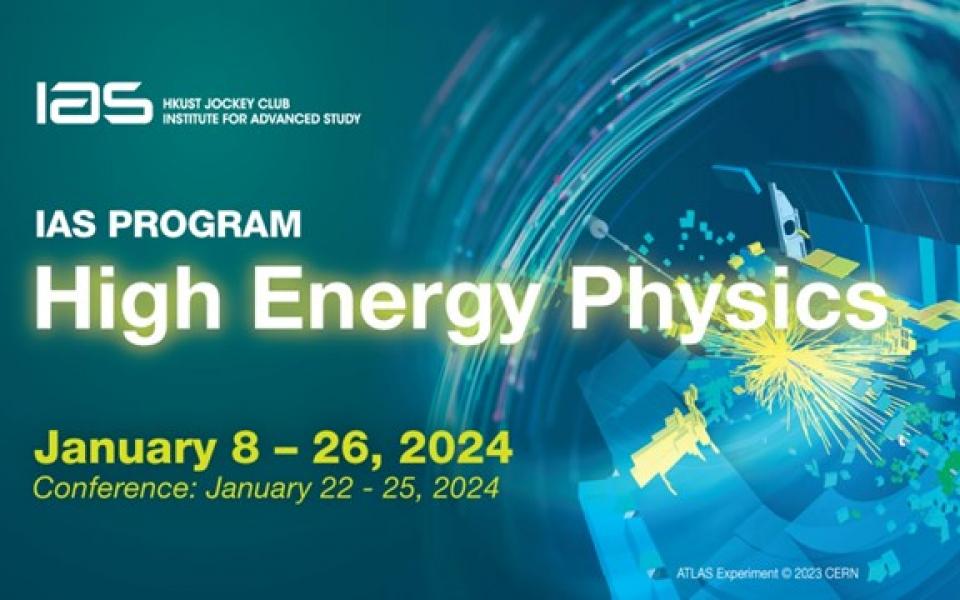IAS Program on High Energy Physics (2024)
Supporting the below United Nations Sustainable Development Goals:支持以下聯合國可持續發展目標:支持以下联合国可持续发展目标:
Program Website
https://ias.hkust.edu.hk/hep/2024
Overview
After the discovery of the Higgs boson, the main objectives of high-energy physics are the precise measurement of Higgs properties and searches for new physics. These objectives strongly motivate the construction of next-generation experimental facilities such as e+e- Higgs factory and 100TeV pp collider or muon collider.
The Higgs boson plays a crucial role in explaining spontaneous electroweak symmetry breaking and the mass generation of the known fundamental particles. It is thus important to measure precisely the Higgs-gauge couplings, the Higgs-Yukawa couplings and the Higgs self-couplings. A future Higgs factory would achieve such a goal significantly better than the LHC. Such precise measurements also provide an indirect probe for new physics that alters the Higgs properties.
Addressing fundamental puzzles in nature such as hierarchy problem, dark matter, etc. results in expectation that new physics should emerge at the TeV scale or above. A higher energy machine like new pp collider or muon collider will be crucial for directly exploring new physics and the properties of any to-be-discovered particles at the LHC.
This High Energy Physics (HEP) program in Hong Kong started in 2015. The objective of this program is to bring theorists, experimentalists and accelerator physicists together, to stimulate discussions and exchange thoughts on the future collider programs. As part of this HEP program, a four-day conference will be held during January 22 – 25, 2024. Before that, three two-day mini-workshops focusing on accelerator, experiment/detector and theory respectively, will be organized in the week before the conference. It is also hoped that some white papers for the particle physics community documenting the physics goals, options of future colliders, and the reach of the related experiments could be released.
Mini-workshops in
(1) Accelerator - Green Accelerator and Colliders (Jan 18 - 19, 2024)
The mini workshop on green accelerator and colliders will be held from Jan. 18-19, 2023 at HKUST IAS. Facing to the future large scale accelerator and colliders which demand large amount of electricity power during operations, to guarantee the sustainable progress of scientific researches based on these kinds of machines, it is vital to strengthen the dedicated studies, R&D efforts and development in increasing the efficiency of electcity consumptions, wast heat recovery and green energy applications, etc. International exchanges and collaborations are important towards these goals.
(2) Experiment and Detector - Tracking Detectors and Reconstruction for Future Colliders (Jan 17 - 19, 2024)
A Higgs factory is universally recognised as the next large future collider to be realised. Tracking detectors, ranging from vertex detectors, large gas tracker to muon detectors, play an essential role in any detector concept conceived for a Higgs factory. Information from all tracking detectors, in conjunction with information coming from calorimeters and PID, is the input to the reconstruction algorithms employed. Modern reconstruction algorithms make an extensive use of machine learning and artificial intelligence tools.
(3) Theory (Jan 15 - 16, 2024)
Conference: Jan 22 - 25, 2024
Joint Organizers
Center for Future High Energy Physics, Institute of High Energy Physics, Chinese Academy of Sciences, Beijing
Joint Consortium of Fundamental Physics, Hong Kong
Registration
Please refer to https://indico.cern.ch/event/1335278/registrations/98932/
